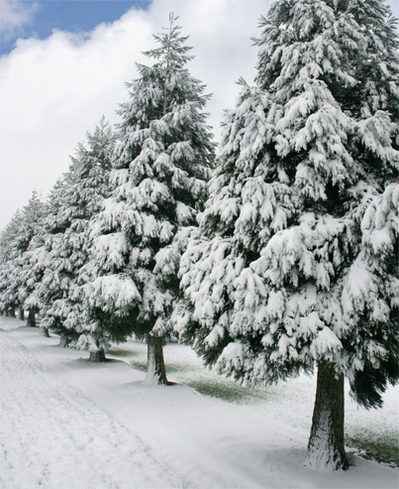A thorny matter of faith and morals between a bishop and a historic “Catholic” hospital has been settled: the hospital is no longer a Catholic hospital. Mass is not permitted to be celebrated there and the Blessed Sacrament can’t be reserved there. Phoenix’s St Joseph’s Hospital and Medical Center whose owner is Catholic Healthcare West (CWH) defied Catholic teaching and the authority of the Catholic bishop in whose diocese the hospital is located. St Joseph’s is one of several hospitals in Phoenix, Arizona. For Catholics, the bishop of the diocese is the final authority on matters of faith and morals; the bishop is not a branch manager, he is the successor of the Apostles.
Father Savio Hon Tai-fai to work at the Holy See
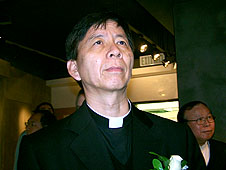 The Pope named Father Savio Hon Tai-fai, a member of the Salesians of Don Bosco, 60, the Archbishop Secretary to the Congregation for the Evangelization of Peoples (the Vatican office responsible for missionary efforts). Archbishop-elect is a native of Hong Kong was ordained a priest 28 years ago. He’s well-regarded as a person, a good priest and an accomplished teacher and author; Hon has served on the International Theological Commission.
The Pope named Father Savio Hon Tai-fai, a member of the Salesians of Don Bosco, 60, the Archbishop Secretary to the Congregation for the Evangelization of Peoples (the Vatican office responsible for missionary efforts). Archbishop-elect is a native of Hong Kong was ordained a priest 28 years ago. He’s well-regarded as a person, a good priest and an accomplished teacher and author; Hon has served on the International Theological Commission.
O Antiphon: O Emmanuel
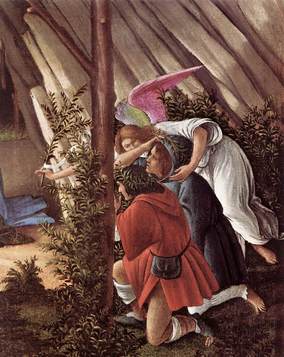 O Emmanuel, Rex et legifer noster, exspectatio
O Emmanuel, Rex et legifer noster, exspectatio
Gentium, et Salvator earum: veni ad salvandum nos, Domine, Deus noster.
Emmanuel, God with us, our King and Lawgiver, the expected of the nations and
their Savior: Come to save us, O Lord our God (Is 7:14; 33:22).
Don’t trivialize sexuality Vatican urges
Note of the Congregation for the Doctrine of the
Faith
On the trivilization of sexuality regarding
certain interpretations of Light of the World
Following the
publication of the interview-book Light of the World by Benedict XVI, a
number of erroneous interpretations have emerged which have caused confusion
concerning the position of the Catholic Church regarding certain questions of
sexual morality. The thought of the Pope has been repeatedly manipulated for
ends and interests which are entirely foreign to the meaning of his words – a
meaning which is evident to anyone who reads the entire chapters in which human
sexuality is treated. The intention of the Holy Father is clear: to rediscover
the beauty of the divine gift of human sexuality and, in this way, to avoid the
cheapening of sexuality which is common today.
Some interpretations have
presented the words of the Pope as a contradiction of the traditional moral
teaching of the Church. This hypothesis has been welcomed by some as a positive
change and lamented by others as a cause of concern – as if his statements
represented a break with the doctrine concerning contraception and with the
Church’s stance in the fight against AIDS. In reality, the words of the Pope –
which specifically concern a gravely disordered type of human behaviour, namely
prostitution (cf. Light of the World, pp. 117-119) – do not signify a
change in Catholic moral teaching or in the pastoral practice of the Church.
O Antiphon: O King
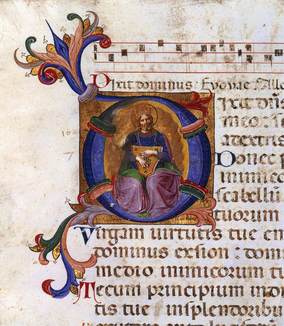 O Rex Gentium, et desideratus earum, lapisque
O Rex Gentium, et desideratus earum, lapisque
angularis, qui facis utraque unum: veni, et salva hominem, quem de limo
formasti.
makes both one: Come, and deliver man, whom You formed out of the dust of the
earth (Is 9:7; 2;4; Ps 2:7-8, Eph 2:14-20).
Exercising proper judgment in our life so that we share in God’s glory
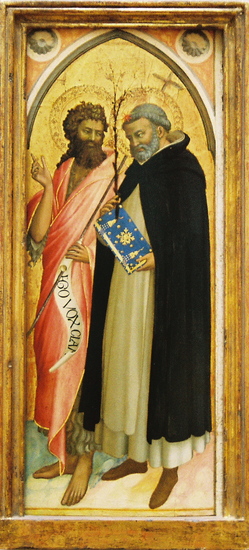 Last week the novices of the Order of Friars Preachers –the Dominicans of the Province of Saint Joseph– heard the following talk by Dominican Father André-Joseph LaCasse. Father LaCasse is the pastor of the Church of Saint Gertrude, Cincinnati, OH. I am not a Dominican but I have great affection for the Dominican vocation and many friends are of that persuasion, however many readers of this blog are not Dominicans. So, I thought after reading LaCasse’s talk there is something we can all be helped by what was said about the fraternal life the Dominican Order. In my estimation Father LaCasse’s thoughts are applicable to all states of the Christian life: the single person, the married couple, the Capuchin, the secular priest, bishop, etc. In the School of Community (of CL) we’ve been working on Father Luigi Giussani’s notion of charity and sacrifice and are about to start the section on virginity. And I ask myself: How is it that as a Christian I live in a state of perpetual discernment of faith, hope and charity through a life of sacrifice? In what concrete ways do I live honestly? Well, I’m off to confession to find that out. You?
Last week the novices of the Order of Friars Preachers –the Dominicans of the Province of Saint Joseph– heard the following talk by Dominican Father André-Joseph LaCasse. Father LaCasse is the pastor of the Church of Saint Gertrude, Cincinnati, OH. I am not a Dominican but I have great affection for the Dominican vocation and many friends are of that persuasion, however many readers of this blog are not Dominicans. So, I thought after reading LaCasse’s talk there is something we can all be helped by what was said about the fraternal life the Dominican Order. In my estimation Father LaCasse’s thoughts are applicable to all states of the Christian life: the single person, the married couple, the Capuchin, the secular priest, bishop, etc. In the School of Community (of CL) we’ve been working on Father Luigi Giussani’s notion of charity and sacrifice and are about to start the section on virginity. And I ask myself: How is it that as a Christian I live in a state of perpetual discernment of faith, hope and charity through a life of sacrifice? In what concrete ways do I live honestly? Well, I’m off to confession to find that out. You?
You are privileged here because you
live with friars who have lived this life for quite some time. In our community
we have two jubiliarians, one who is close to being a jubiliarian, and the rest
of us who have lived this life for over twenty years. Our lives as religious is
a steady progress towards perfection, but a perfection that experiences many
imperfections along the way. Our lives are not extraordinary. None of us has
won prestige. None of us is in the limelight. We live ordinary lives of
consecration, hoping that we can do our best to advance the cause of Jesus
Christ and his Church.
The Dominican life is a life of
prayer, study, and the apostolate. Most days are ordinary days where you are
called to be simple servants of the Church. Do you desire to be a servant? Are
you willing to die to your own desires in order to do the desire of God manifested
through the will of our superiors? In a real sense you will not be able to
answer this question until something is asked of you that takes real sacrifice
and humility. But still the question needs to be asked now: Am I willing to die
to myself and become a servant of the Church? The question needs to be answered
now because from the very beginning of your discernment you must be brutally
honest with yourself.
Continue reading Exercising proper judgment in our life so that we share in God’s glory
In Saint Joseph we look to the future with confidence & courage, total trust in God’s mercy, Pope says
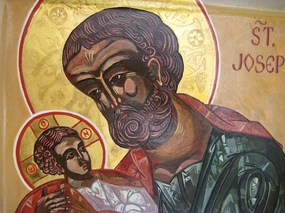 In the Season of Advent there are so many people to emulate: Jesus, Mary, the martyrs, various other saints, and Joseph in particular. Saint Joseph factors into Catholicism so much that one can reasonably ask, Can any good Catholic not pay attention to Saint Joseph? Obviously not. I took as my oblation name with the Benedictine oblates “Meinrad-Joseph” primarily because of the virtues of Saint Meinrad and for the devotion shown by Joseph for Jesus; in taking the name Meinrad-Joseph I honor my father, Edward Joseph.
In the Season of Advent there are so many people to emulate: Jesus, Mary, the martyrs, various other saints, and Joseph in particular. Saint Joseph factors into Catholicism so much that one can reasonably ask, Can any good Catholic not pay attention to Saint Joseph? Obviously not. I took as my oblation name with the Benedictine oblates “Meinrad-Joseph” primarily because of the virtues of Saint Meinrad and for the devotion shown by Joseph for Jesus; in taking the name Meinrad-Joseph I honor my father, Edward Joseph.
The Pope spoke on Sunday at the Angelus on the great foster father of Jesus and the patron saint against doubt, cabinetmakers, Canada, carpenters, China, confectioners, craftsmen, dying people, engineers, families, fathers, happy death, holy death, house hunters, Korea, laborers, Mexico, New France, people in doubt, Peru, pioneers, protector of the Church, social justice, travelers, Universal Church, Vatican II, Viet Nam, workers, working people. AND now the Pope adds pastors to this list under Saint Joseph’s care.
At Sunday’s Angelus Pope Benedict XVI had this to say about Saint Joseph:
On this fourth Sunday of Advent the Gospel of St. Matthew tells us how the birth of Jesus came about, taking the perspective of St. Joseph. He was the betrothed of Mary, who, “before they lived together, was found to be with child by the power of the Holy Spirit” (Matthew 1:18). The Son of God, realizing an ancient prophecy (cf. Isaiah 7:14), became man in the womb of a virgin, and such a mystery simultaneously manifests the love, wisdom and power of God on behalf of humanity wounded by sin. St. Joseph is presented as a “just man” (Matthew 1:19), faithful to God’s law, ready to do his will. On account of this he enters into the mystery of the Incarnation after an angel of the Lord appears to him in a dream and tells him: “Joseph, son of David, do not be afraid to take Mary your wife with you. In fact the child that has been conceived in her comes from the Holy Spirit; she will give birth to a son and you will call him Jesus: he in fact will save his people from their sins” (Matthew 1:20-21). Forgetting the thought of repudiating Mary in secret, he takes her in because his eyes now see the work of God in her.
St. Ambrose comments that “in Joseph there was amiability and the figure of a just man to make the quality of his witness more worthy” (Exp. Ev. sec. Lucam II, 5: CCL 14,32-33). “He,” Ambrose continues, “could not have contaminated the temple of the Holy Spirit, the Mother of the Lord, the fruitful womb of the mystery” (ibid. II, 6: CCL 14, 33). Although he had been concerned, Joseph “did as the angel of the Lord ordered him,” certain of doing the right thing. Also giving the name “Jesus” to that child who rules the entire universe, he enters into the ranks of the faithful and humble servants, like the angels and prophets, like the martyrs and the apostles — in the words of ancient eastern hymns. St. Joseph proclaims the wonders of the Lord, witnessing Mary’s virginity, the gratuitous deed of God, and caring for the earthly life of the Messiah. So, we venerate the legal father of Jesus (Code of Canon Law, 532), because the new man takes form in him, who looks to the future with confidence and courage, does not follow his own project, but entrusts himself totally to the infinite mercy of him who fulfills the prophecies and inaugurates the season of salvation.
Dear friends, to St. Joseph, universal patron of the Church, I would like to entrust all pastors, exhorting them to offer “to faithful Christians and the whole world the humble and daily proposal of the words of Christ” (Letter Proclaiming the Year for Priests). May our life be evermore conformed to the person of Jesus, precisely because “the one who is himself the Word takes on a body, he comes from God as a man and draws the whole of man’s being to himself, bearing it into the Word of God” (Jesus of Nazareth, San Francisco, 2008, 334). Let us invoke the Virgin Mary with confidence, the one who is full of grace, “adorned by God,” so that at Christmas, which is already near, our eyes may open and see Jesus, and the heart rejoice in this wondrous encounter of love.
O Antiphon: O Dawn of the East (Dayspring)
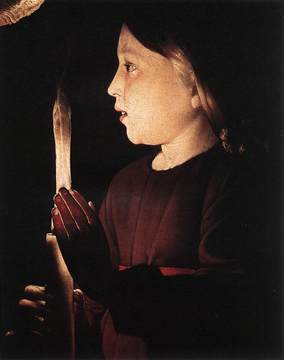 O Oriens, splendor lucis aeternae, et sol justitiae: veni, et illumina sedentes in tenebris, et umbra mortis.
O Oriens, splendor lucis aeternae, et sol justitiae: veni, et illumina sedentes in tenebris, et umbra mortis.
Pope speaks to new ambassadors from Africa…why bother?
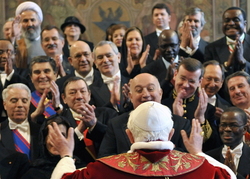 If you are following the daily work of the Pope you’ll
If you are following the daily work of the Pope you’ll
notice that his schedule is often filled with meeting important people.
Ambassadors are but one such group of important people that build relationships between the Pope (and
the Holy See) with a respective nation. From my perspective I am interested in the workings of the US Ambassador to the Holy See,
Dr. Miguel Humberto Dias, but I have an interest in what others are doing, too, because of the universality of the Church and needs of humanity.
Continue reading Pope speaks to new ambassadors from Africa…why bother?
